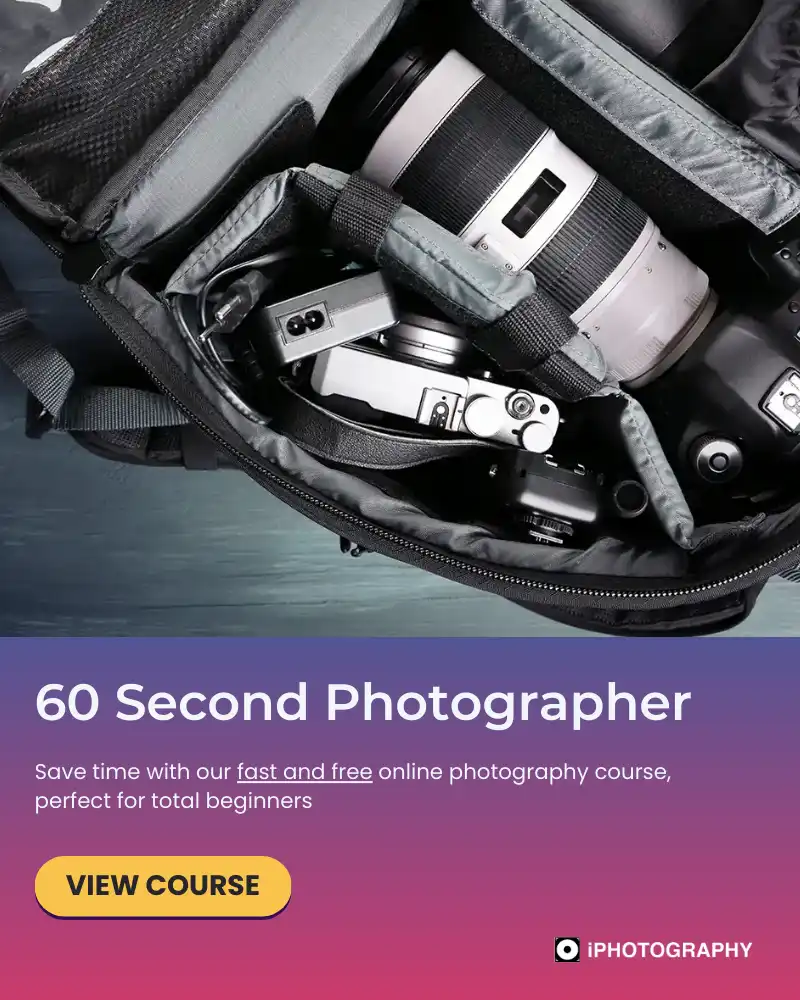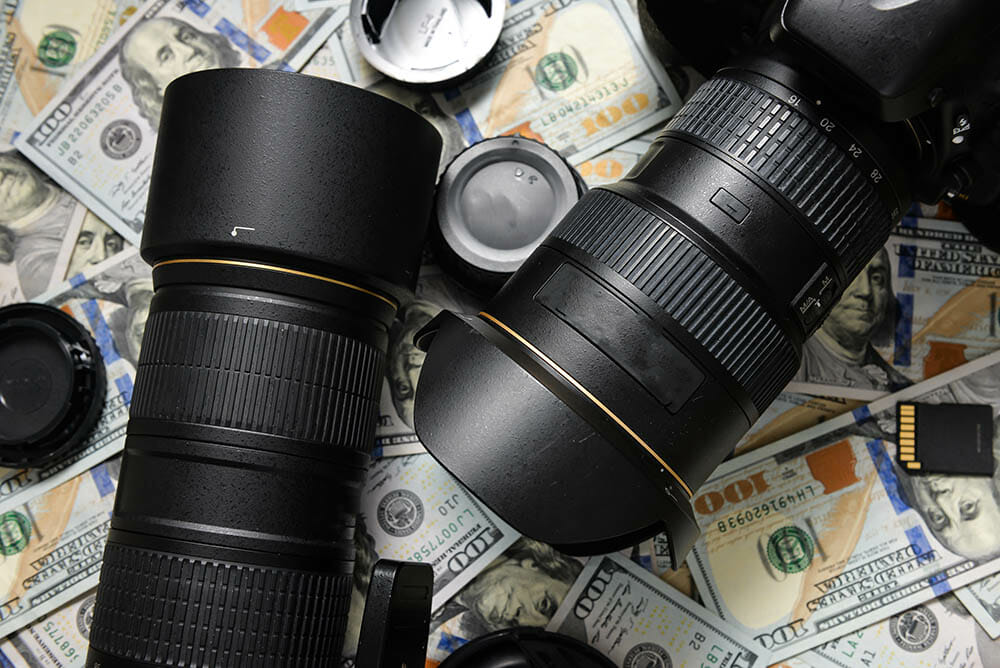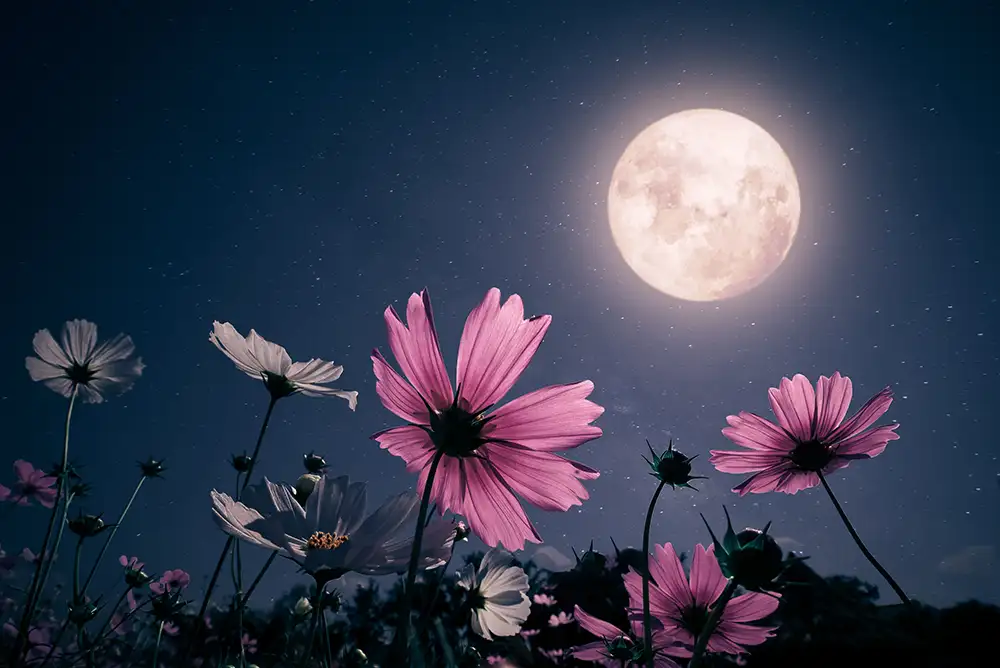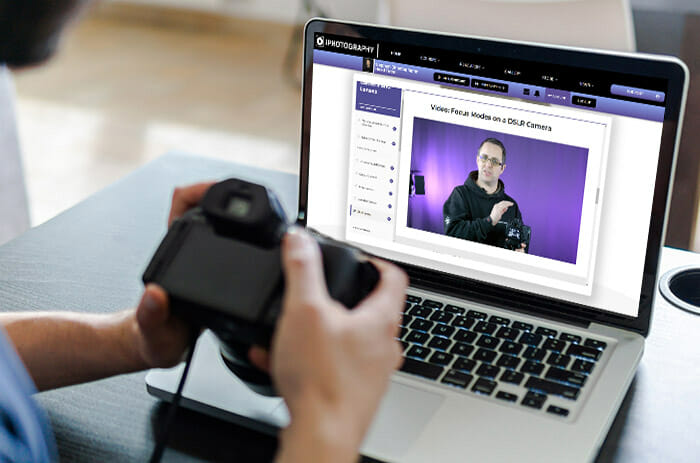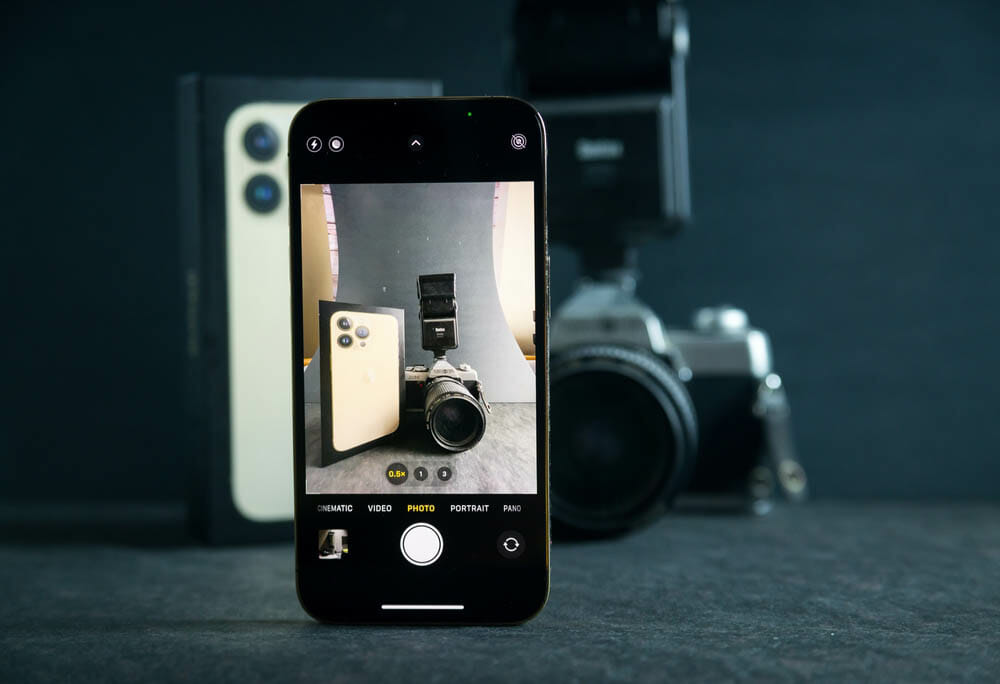
The fast changes to technology has made smartphone cameras a viable option for casual photographers. But is this challenging the traditional dominance of DSLR cameras?
In this article, I’m going to compare DSLR cameras and phone cameras. I’ll focus on which is better suited for beginner photographers.
I’ll show you the benefits and disadvantages of each camera type. Hopefully, this will help you make an informed decision based on your needs and preferences.
Benefits of DSLR Cameras
DSLR cameras give you larger sensor which captures more light, resulting in higher-resolution images. When shooting in dark places you’ll get less noise, which is something you don’t get with a mobile phone.
You’ll have access to manual controls over aperture, shutter speed, and ISO which offers creative freedom. While some high-end camera phones offer the option to shoot in RAW (which allows for extensive editing), this isn’t common across the board but is with DSLR cameras.
DSLR cameras have a wide range of lenses available for different types of photos (e.g., wide-angle, telephoto, macro). If you combine the right lens and aperture setting you’ll have the ability to take photos with a shallow depth of field as well as stunning bokeh.
When you’re using a DSLR you’ll notice they’re better to capture fast-action moments with minimal shutter lag and frame burst shooting capability.
DSLRs are larger in size and weight but provide a better grip and stability, which enhance an overall shooting experience. There are dedicated buttons and controls that enable quick adjustments and customisation.
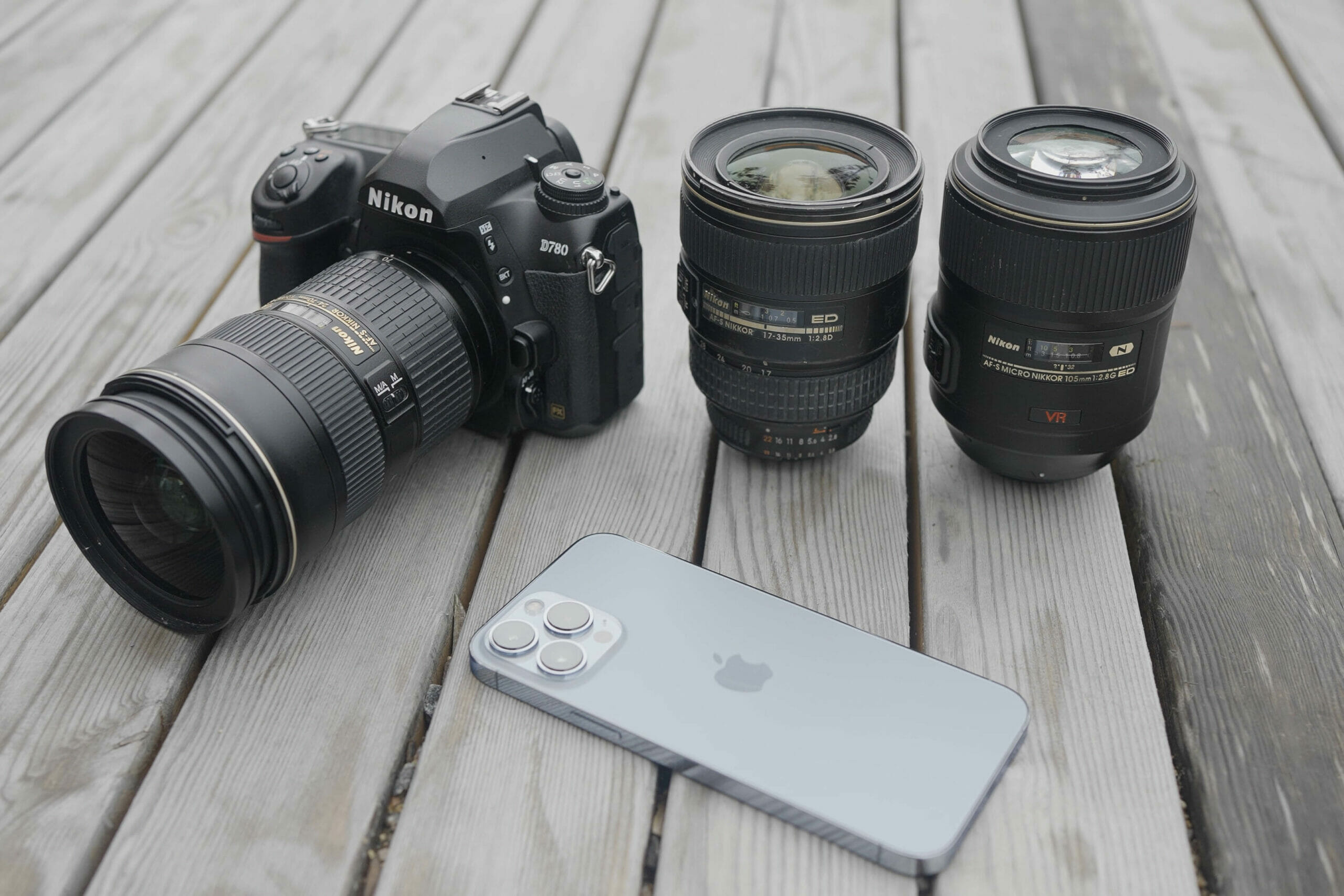
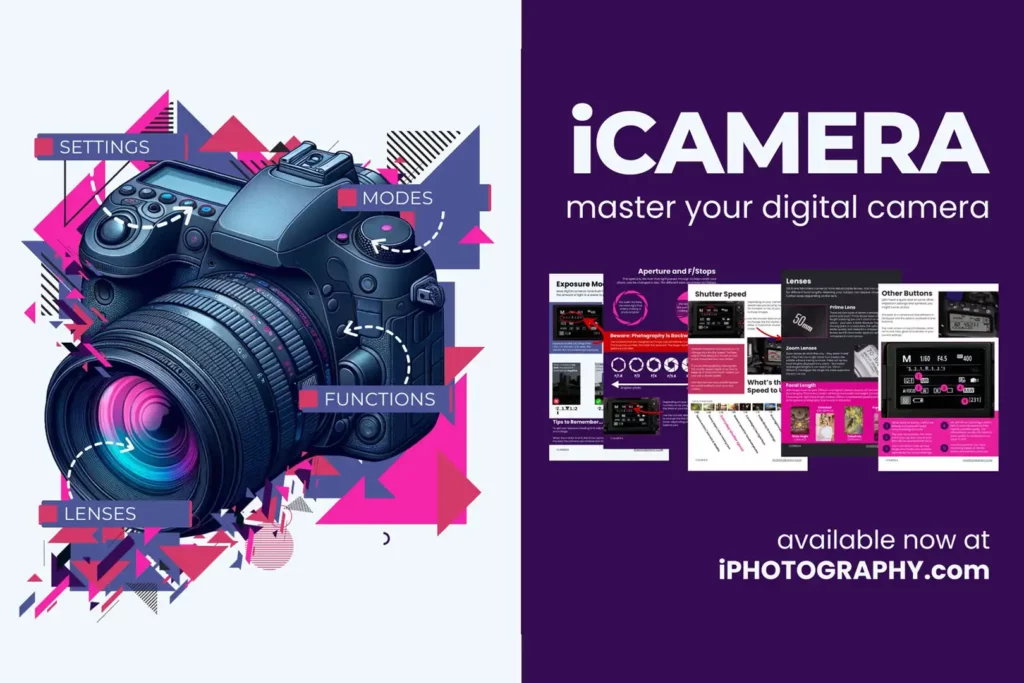
Download our Latest FREE Photography Book
Reasons to Use a Phone Camera for Photography
Why should you otherwise use a phone camera for photography instead of a DSLR or mirrorless camera? Let me give you a few reasons.
Portability and Convenience: A phone is always at hand, allowing spontaneous photography anytime, anywhere. You’ve got instant integration with social media platforms that simplifies sharing and engagement.
User-Friendly Interface: The intuitive interfaces, touchscreen controls, and automated settings make phone cameras accessible for beginners. There are built-in scene modes and filters that provide creative options without the need for technical knowledge.
Connectivity and Versatility: You’ll discover seamless integration with other smartphone features, such as GPS, augmented reality, and photo editing apps.
Emerging Technologies: Advances in computational photography enhance image quality, low-light performance, and image stabilisation. AI-driven features like automatic scene recognition improve the overall photography experience.
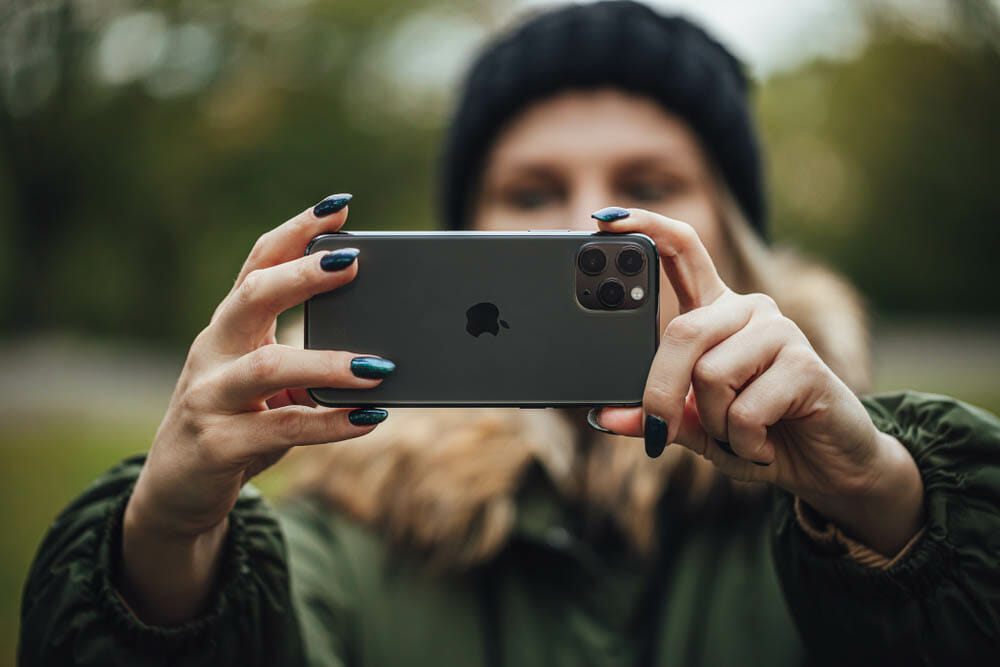
DSLR vs. Phone Cameras: Pros and Cons
Let’s have a quick recap and summary of the pros and cons of deciding whether to use a DSLR or Phone for the bulk of your photography.
DSLR Cameras
Benefits:
- Superior image quality and dynamic range.
- Interchangeable lenses for various creative possibilities.
- Advanced controls for customisation and learning.
Disadvantages:
- They’re bulkier and heavier, limiting portability.
- A steeper learning curve for beginners.
- Higher cost due to additional lens purchases.
Phone Cameras
Benefits:
- Portability and convenience for everyday use.
- User-friendly interface and automated settings.
- Cost-effective options for beginner photographers.
Disadvantages:
- Limited sensor size impacts image quality in challenging lighting conditions.
- Less control over settings and creative options.
- Lack of optical zoom and depth of field control.
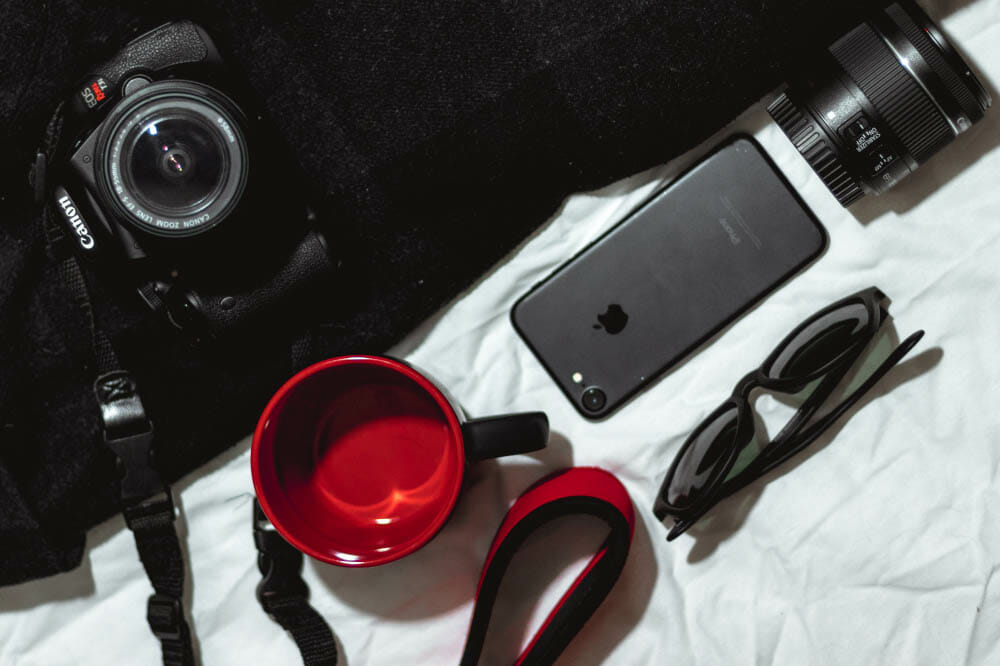
Choosing the Best Camera for Beginner Photographers
DSLRs offer full manual controls that encourage learning and experimentation. Interchangeable lenses provide a wide range of creative possibilities. DSLRs also capture high-resolution images with superior dynamic range.
Phone cameras are much more accessible for capturing spontaneous moments. If you’re a total beginner you’ll find them easy to understand and navigate, requiring minimal technical knowledge. There’s no need to buy extra lenses which makes it budget-friendly.
DSLR v Phone Cameras: Summary
DSLR cameras and phone cameras cater to different needs, and choosing the best option for beginner photographers depends on your personal preferences and goals.
DSLRs offer superior image quality, manual control, and interchangeable lenses but have a steeper learning curve and higher costs.
Whereas, phone cameras provide convenience, accessibility, and affordability, with advanced computational photography features.
Ultimately, beginners can start with either option and progress based on their interest and commitment to learning photography.
I’d recommend for beginners consider their photography aspirations, budget, and willingness to learn technical aspects before deciding. So whichever camera type you choose, a passion for photography, practice, and exploration of composition will be the key to your growth as a photographer.


